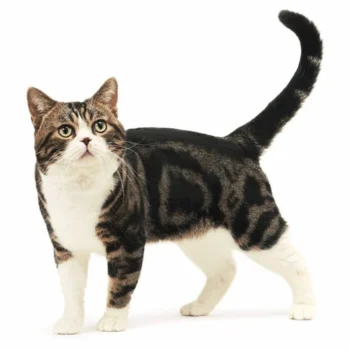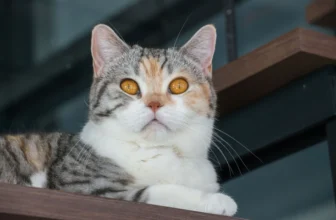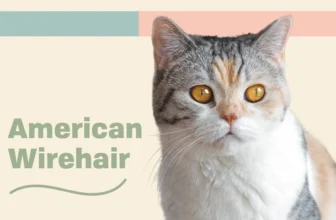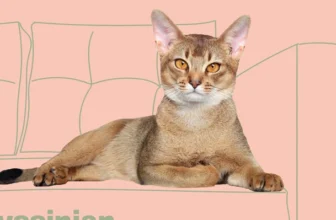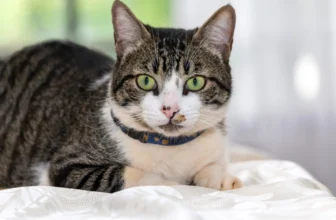Introduction
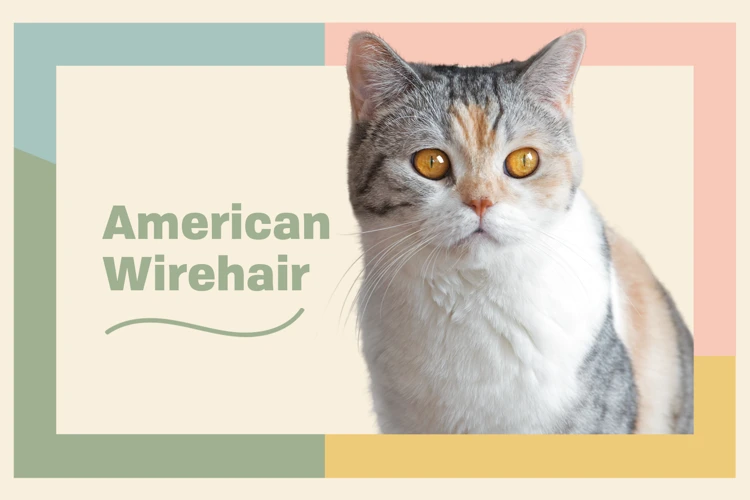
As a cat owner, you want to keep your pet healthy and happy. However, sometimes cats can experience gastrointestinal issues which can be worrisome for their owners. It is important to understand the causes, symptoms, prevention, and treatment of these issues in order to give your American Wirehair the best care possible. In this article, we will discuss everything you need to know about gastrointestinal problems in American Wirehairs, including the causes, symptoms, prevention, and treatment, as well as home care tips to ensure your feline friend stays comfortable and healthy.
About American Wirehairs
American Wirehairs are a unique and charming breed of cats known for their distinctive wiry and dense coat. They are a relatively new breed, developed in the United States in the 1960s and accepted for championship status in the Cat Fanciers’ Association in 1978.
Physical Characteristics:
- The American Wirehair’s signature coat is distinctively wiry and springy to the touch, with each hair having a bent or hooked end for added texture.
- They have a medium to large build, with a muscular and broad-chested body and a round head with large, wide-set eyes.
- Their coat can come in a variety of colors and patterns, including solid, tabby, and calico.
- They have a life expectancy of around 15 years.
Temperament:
- The American wirehair is a friendly, affectionate, and playful breed that enjoys spending time with their family.
- They are known for their intelligence and problem-solving abilities and can be taught tricks and games.
- They tend to be social and can get along well with children and other pets.
- They do possess a high prey drive and may chase small animals, so it’s essential to keep them indoors or supervised outside.
American Wirehairs are a charming and unique breed that makes an excellent pet for the right family. Like all cats, they require proper care, including regular vet checkups, dental care, and attention to any potential health issues that may arise. By taking care of their physical and emotional wellbeing, you can help ensure that your American Wirehair leads a long, healthy, and happy life.
If you want more information about other health issues American Wirehairs might have you can check out one of our articles on:
– Preventing hairballs in American Wirehairs
– Dental care for American Wirehairs
– Ear infections in American Wirehairs
– Allergy management in American Wirehairs
– Healthy weight in American Wirehairs
– The benefits of regular vet checkups for American Wirehairs
Overview of Gastrointestinal Issues
Gastrointestinal issues are a common problem faced by American Wirehairs and other cat breeds. These problems can range from mild to severe and warrant immediate attention from a vet. Cats may experience a loss of appetite, vomiting, diarrhea, abdominal pain and discomfort, or constipation if they have gastrointestinal issues. It is essential to understand why these problems arise to take preventive measures and reduce the risk of gastrointestinal issues.
There can be several reasons for the occurrence of gastrointestinal issues in American Wirehairs. Some of the most common causes are diet, parasites and infections, inflammatory bowel disease (IBD), and stress. A comprehensive understanding of these causes can help prevent and control gastrointestinal issues.
Diet
Diet is a crucial factor that can impact a cat’s digestive system. Many cat foods available in the market contain fillers and artificial ingredients that can cause gastrointestinal issues in cats. Overfeeding or not feeding enough food can also lead to digestive issues. Ensure that your American Wirehair’s diet provides adequate nutrition, including protein, vitamins, and minerals. Provide a balanced diet without compromising on the quality of the food.
Parasites and Infections
Parasites such as roundworms, tapeworms, and hookworms can impact your American Wirehair’s digestion. These parasites can cause vomiting, diarrhea, and weight loss. Infections such as salmonella and E. coli can also lead to gastrointestinal issues. Frequent deworming and maintaining proper hygiene can help prevent parasitic infections.
IBD and other Diseases
Inflammatory bowel disease (IBD) can cause inflammation in a cat’s digestive tract, leading to several gastrointestinal issues. Cats suffering from IBD may experience vomiting, diarrhea, constipation, and weight loss. Other diseases such as diabetes and kidney diseases can also affect gastrointestinal health.
Stress
Stress can impact digestive health as it can affect gut motility. Environmental stress such as changes in their living arrangements, loud noises, and interactions with other pets can trigger stress responses. Reducing stress and keeping your pet in comfortable surroundings can prevent the onset of gastrointestinal issues.
Understanding the causes of gastrointestinal issues in American Wirehairs can help pet owners take preventive measures. A balanced diet, regular vet visits, parasite control, stress management, and adequate hydration can go a long way in maintaining gastrointestinal health in cats. Regular follow-ups and care can help improve outcomes in cats suffering from gastrointestinal issues.
Causes of Gastrointestinal Issues
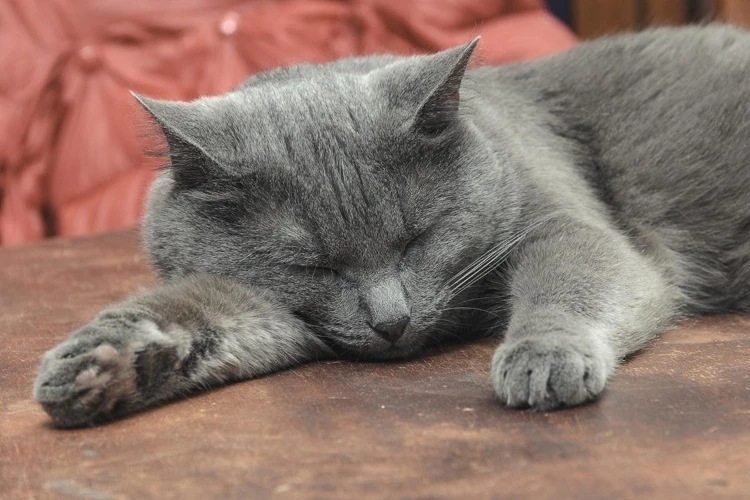
One of the most perplexing aspects of gastrointestinal issues in American Wirehairs is identifying their root causes. While some cases may be due to a specific trigger, such as an infection or dietary indiscretion, others may be more complex and difficult to diagnose. However, understanding the potential causes of gastrointestinal issues in American Wirehairs is key to preventing future flare-ups and ensuring your cat stays healthy. In this section, we will explore some of the most common underlying factors that can lead to gastrointestinal issues in American Wirehairs, and how to address them.
Diet
Maintaining a proper diet is essential for preventing and managing gastrointestinal problems in American Wirehairs. It is important to provide a balanced diet that includes adequate amounts of protein, fiber, and carbohydrates. Below are some dietary factors that can lead to gastrointestinal issues in American Wirehairs:
- Low-quality food: Feeding your American Wirehair low-quality food can lead to poor digestion and malnourishment. Make sure to choose high-quality cat food that meets the AAFCO (Association of American Feed Control Officials) standards for complete and balanced nutrition.
- Overfeeding: Overfeeding your American Wirehair can cause weight gain, which can put extra pressure on the digestive system and lead to constipation or diarrhea. Make sure to follow the recommended feeding guidelines and monitor your cat’s body condition regularly.
- Changes in diet: Suddenly changing your cat’s diet can cause gastrointestinal upset, such as vomiting or diarrhea. If you need to transition your American Wirehair to a new diet, do it slowly over a period of 7-10 days by gradually increasing the new food while decreasing the old food.
- Allergies: Some American Wirehairs may have food allergies or intolerances that can cause gastrointestinal problems. For example, some cats may be sensitive to common ingredients like chicken or beef. If you suspect your cat has a food allergy, talk to your vet about allergy testing and prescription hypoallergenic diets.
In addition to the above factors, proper hydration is also important for maintaining good digestive health in American Wirehairs. Make sure to provide your cat with fresh, clean water at all times and encourage them to drink by using a fountain or adding wet food to their diet. By providing a balanced diet and ensuring adequate hydration, you can help prevent gastrointestinal issues in your American Wirehair.
Parasites and Infections
Parasites and infections are one of the common causes of gastrointestinal issues in American Wirehairs. Parasites can be internal or external, while infections may be bacterial or viral. Some of the common parasites that can affect your pet include tapeworms, roundworms, hookworms, and whipworms. These parasites can cause serious digestive problems such as vomiting, diarrhea, and abdominal pain.
The following are some preventative measures you can take:
- Make sure your pet is up-to-date on their parasite preventative medication, which can be administered in different forms including oral and topical, depending on the specific medication.
- Keep your pet’s environment clean and hygienic, including their bedding, litter box, or living space, to prevent the spread of parasites.
- Regularly wash your pet’s food and water bowls to prevent bacterial growth and infection.
If you suspect that your pet has a parasite or infection, it’s important to seek veterinary care immediately. Your veterinarian may prescribe medication or other treatments to eliminate the parasite or infection and help your pet recover. Additionally, some parasites and infections can be transmitted to humans, so it’s essential to handle your pet’s waste and hygiene with care to prevent their spread.
IBD and other Diseases
Inflammatory Bowel Disease (IBD) is one of the most common gastrointestinal issues in cats, including the American Wirehair breed. IBD is a chronic condition that affects the lining of the digestive tract, causing inflammation and irritation. This condition can lead to a host of other health issues, including malnutrition and dehydration.
Other diseases that can cause gastrointestinal problems in American Wirehairs include:
| Disease | Symptoms |
|---|---|
| Colitis | Diarrhea, bloody stools, abdominal discomfort |
| Pancreatitis | Vomiting, diarrhea, loss of appetite, abdominal pain |
| Gastroenteritis | Diarrhea, vomiting, abdominal pain, loss of appetite |
| Intestinal Obstruction | Vomiting, lethargy, decreased appetite, constipation |
| Cancer | Weight loss, vomiting, diarrhea, abdominal pain, lethargy |
These conditions can be caused by a variety of factors, including genetics, infections, allergies, and environmental factors. If your American Wirehair exhibits any of these symptoms, it is important to seek veterinary care as soon as possible.
Diagnosis of these conditions may involve blood work, stool samples, radiographs, or ultrasound examination. Treatment options may include medication, specialized diets, and in some cases, surgery.
It is important for American Wirehair owners to be aware of the signs and symptoms of these conditions in order to provide their cats with the best possible care. Proper monitoring of diet, regular vet visits, and parasite control can help prevent these conditions from developing in the first place.
Stress
It may come as a surprise, but stress can have a significant impact on gastrointestinal health in American Wirehairs. While cats are known for their laid-back demeanor, they can experience stress just like humans. In fact, cats are very perceptive to their environment and can easily pick up on changes or disruptions.
Stress can directly affect the digestive system, leading to issues like vomiting, diarrhea, and constipation. When an American Wirehair becomes stressed, the body releases cortisol, a hormone that can slow down digestion and cause discomfort. This hormonal response can make existing gastrointestinal issues worse or even trigger new ones.
So, what can cause stress in American Wirehairs? Here are some common stressors for cats:
| Stressor | Effects on Gastrointestinal Health |
|---|---|
| Loud Noises | Noises like thunder, fireworks or loud music can cause stress and disrupt digestion in cats. |
| Changes in Routine | Changes in feeding schedules, exercise routines, or a new pet or family member can be stressful for cats. |
| Illness or Injury | An American Wirehair who is sick or in pain can also become stressed and exacerbate existing gastrointestinal problems. |
| Lack of Stimulation | Cats need mental stimulation like playtime and interaction. A lack of stimulation can lead to stress and boredom. |
| Environmental Stressors | Environmental stressors like overcrowding, living with too many animals, or exposure to strong odors can contribute to stress in American Wirehairs. |
It’s essential to identify stressors in your American Wirehair’s life and work to minimize them. Consider creating a safe, comfortable space for your cat. Providing plenty of toys and mental stimulation can help alleviate boredom and stress. Additionally, establishing a routine for feeding, exercise, and playtime can help create a sense of security and predictability for your American Wirehair.
If you’re concerned that your cat may be experiencing stress-related gastrointestinal problems, speak with your veterinarian. They may suggest behavioral and environmental modifications to help reduce your cat’s stress levels. Managing stress can ultimately lead to better gastrointestinal health for your American Wirehair.
Symptoms of Gastrointestinal Issues
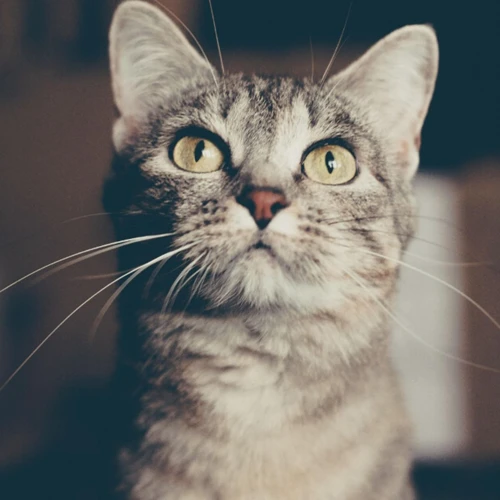
It is important for American Wirehair pet owners to be aware of the symptoms that come with gastrointestinal issues. These symptoms can affect the digestive system and overall health of their beloved pets. Ignoring these signs can lead to serious health problems in the future.
Vomiting: This is a common symptom of gastrointestinal problems in American Wirehairs. It is the involuntary expulsion of food or liquid through the mouth.
Diarrhea: Loose stools or an increased frequency of bowel movements can indicate gastrointestinal issues. Keep an eye out for black, tarry stools or the presence of blood in the stool.
Loss of appetite: A sudden disinterest or lack of appetite in food can be a sign of gastrointestinal discomfort.
Abdominal pain: American Wirehairs with gastrointestinal issues may show signs of discomfort in their stomach area. They may grow increasingly restless or try to position themselves in an uncomfortable manner.
Bloating: This occurs when the gastrointestinal tract fills with air or gas, leading to a sensation of fullness or tightness.
Other symptoms include lethargy, weight loss, and dehydration. It is essential to monitor your American Wirehair for any changes in behavior or physical symptoms. Early detection can be beneficial when preventing more severe health problems. Consult a veterinarian if your pet displays any of these symptoms.
Preventing Gastrointestinal Issues
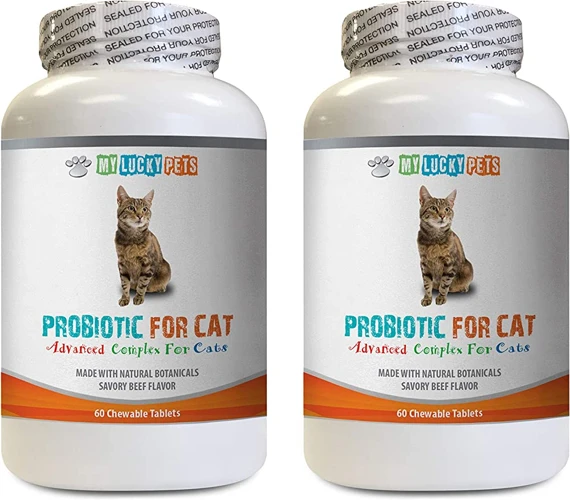
As a responsible pet owner, it’s crucial to take measures to prevent gastrointestinal problems in your American Wirehair. By paying attention to their diet, hydration, and overall health, you can help keep their digestive system functioning properly. In this section, we’ll explore some actionable steps you can take to minimize the likelihood of your cat experiencing gastrointestinal distress.
Proper Diet and Nutrition
Maintaining a proper diet and nutrition is essential for preventing gastrointestinal problems in American Wirehairs. Here are some tips to follow:
- Choose high-quality food: Your American Wirehair’s diet should consist of high-quality, protein-rich food that meets their nutritional needs. Look for food brands that use wholesome ingredients and avoid fillers and byproducts.
- Feed them in small portions: Instead of feeding your American Wirehair large meals a couple of times a day, consider feeding them small portions throughout the day. This will help prevent overeating and reduce the risk of gastrointestinal problems.
- Provide plenty of water: Dehydration can cause constipation and other gastrointestinal issues. Make sure your American Wirehair has access to clean and fresh water at all times.
- Avoid table scraps: Feeding your American Wirehair table scraps is not recommended. Human food can be difficult for cats to digest and can lead to upset stomachs and diarrhea.
- Consider a special diet: If your American Wirehair has a history of gastrointestinal problems, your veterinarian might recommend a special diet that’s designed to improve digestive health. These diets can help reduce inflammation and regulate bowel movements.
- Watch out for food allergies: Some cats can be allergic to certain foods, which can lead to gastrointestinal problems. If you notice your American Wirehair vomiting or experiencing diarrhea frequently, talk to your veterinarian about conducting an allergy test.
Feeding your American Wirehair a proper diet and providing adequate nutrition is crucial for keeping them healthy and preventing gastrointestinal problems. By following these tips and consulting with your veterinarian, you can help ensure that your American Wirehair is getting the proper nutrition they need.
Hydration
It’s crucial to keep your American Wirehair hydrated to prevent gastrointestinal problems. Dehydration can lead to constipation and other digestive disorders. Water is essential for digestion, waste elimination, and nutrient absorption.
One way to ensure hydration is to provide your American Wirehair with fresh, clean water at all times. Consider using a pet fountain to encourage them to drink more. Pet fountains promote the consumption of water by keeping it flowing and aerated. This can be helpful for cats who prefer moving water.
You may also want to offer your American Wirehair wet food, which typically contains more moisture than dry food. However, keep in mind that not all wet food is created equal – make sure to read labels and choose high-quality options with balanced nutrition.
In addition to food and water, there are several other ways to promote hydration in your American Wirehair. Playing with water toys can encourage them to drink more. You can also try adding bone broth to their meals for additional hydration and nutrients.
Here is a table outlining some tips for keeping your American Wirehair hydrated:
| Tip | Description |
|---|---|
| Provide Fresh Water | Ensure your American Wirehair has access to clean, fresh water at all times. |
| Use a Pet Fountain | Pet fountains can encourage cats to drink more water by keeping it flowing and aerated. |
| Choose High-Quality Wet Food | Wet food can help with hydration, but make sure to choose options with balanced nutrition. |
| Play with Water Toys | Water toys can entice your American Wirehair to drink more water. |
| Add Bone Broth | Adding bone broth to their meals can provide extra hydration and nutrients. |
Remember, dehydration can lead to serious health issues, so it’s important to monitor your American Wirehair’s water intake and ensure they are getting enough fluids. If you have any concerns about your cat’s hydration levels, consult with your veterinarian.
Regular Vet Visits and Parasite Control
One of the keys to preventing gastrointestinal issues in American Wirehairs is to prioritize regular vet visits and proper parasite control. By establishing a consistent schedule for check-ups and parasite prevention, pet owners can ensure that their cats are healthy and protected against common gastrointestinal issues.
Here is an overview of the benefits of regular vet visits and effective parasite control:
| Benefits of Regular Vet Visits | Benefits of Parasite Control |
|---|---|
|
|
Consult with your vet about the best schedule for check-ups and parasite control for your American Wirehair. By prioritizing these preventative measures, you can help keep your cat healthy, happy, and free from gastrointestinal issues.
Stress Management
Stress is a common cause of gastrointestinal issues in American Wirehairs. Managing stress is an important step in preventing and treating these issues. There are several ways to help your furry friend reduce stress and manage their anxiety.
1. Identify and Eliminate Stressors: A key factor in managing stress is to identify the source of stress and eliminate it. Common stressors for American Wirehairs include loud noises, changes in routine, being left alone for long periods, and interactions with other pets. Try to avoid these stressors where possible.
2. Regular Exercise: Exercise is a great way to help manage stress in your American Wirehair. Make sure to provide adequate physical activity and playtime to help reduce stress levels. A tired cat is a happy cat.
3. Enrichment Activities: Providing enrichment activities can help alleviate stress for your American Wirehair. Consider giving your cat puzzle toys and providing them with scratching posts and hiding places.
4. A Calm Environment: Creating a calm and peaceful environment can help your furry friend feel more relaxed. Make sure your home is quiet and provide a comfortable resting place for your cat.
5. Pheromone Therapy: Pheromone therapy is a great option for cats experiencing stress. Products are available that mimic the “feel good” pheromones that cats produce, which can help reduce anxiety and calm your cat.
6. CBD Oil: CBD oil has been shown to have a calming effect on cats. It can be a useful tool to help manage stress in American Wirehairs, but make sure to consult with your vet before using.
Managing stress is an important factor in preventing and treating gastrointestinal issues in American Wirehairs. By identifying and eliminating stressors, providing adequate exercise, enrichment activities, and a calm environment, using pheromone therapy and considering CBD oil, you can help your furry friend live a happy, healthy life.
| Stress Management Methods | Key Points |
|---|---|
| Identify and Eliminate Stressors | Avoid common sources of stress like loud noises and changes in routine |
| Regular Exercise | Provide adequate physical activity and playtime |
| Enrichment Activities | Provide puzzle toys, scratching posts, and hiding places for your cat |
| A Calm Environment | Create a calm and peaceful environment in your home |
| Pheromone Therapy | Consider using pheromone therapy products that mimic “feel good” pheromones |
| CBD Oil | Consult with your vet before using CBD oil to help manage stress |
Treating Gastrointestinal Issues
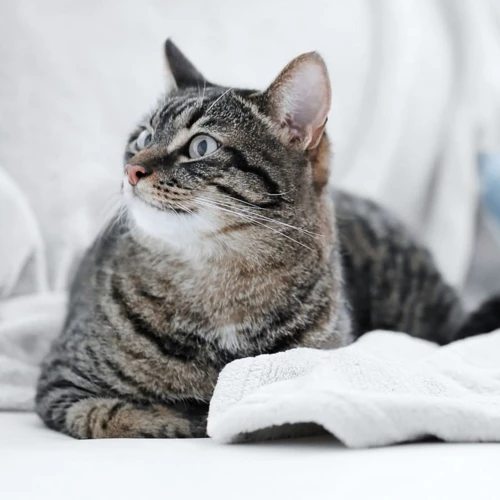
As pet owners, we want nothing but the best for our furry friends. However, despite our best efforts at prevention, our American Wirehairs can still experience gastrointestinal issues. When these issues occur, it’s important to seek treatment promptly to alleviate discomfort and prevent further complications. In this section, we’ll discuss the various diagnostic options and treatments available to help treat gastrointestinal issues in American Wirehairs. Let’s delve deeper into the different ways to treat these issues and restore the digestive health of your beloved pets.
Diagnostics
When it comes to diagnosing gastrointestinal issues in American Wirehairs, there are several methods that veterinarians may use. These can include:
- Physical Exam: The veterinarian will perform a thorough physical exam, which may include palpating the abdomen to feel for irregularities or signs of discomfort.
- Blood Work: Blood tests can help identify any abnormalities or imbalances that may be contributing to your pet’s symptoms.
- X-Rays: X-rays can be used to identify any abnormalities in the gastrointestinal tract, such as blockages or foreign bodies.
- Ultrasound: An ultrasound can provide a more detailed look at the gastrointestinal tract, allowing the veterinarian to identify any abnormalities or inflammation.
- Endoscopy: Endoscopy involves the use of a small camera attached to a flexible tube, which is inserted into the gastrointestinal tract to allow for visualization and collection of samples for biopsy.
It’s important to note that the diagnostic approach may vary based on the specific symptoms your American Wirehair is experiencing, as well as their medical history and any underlying conditions they may have. Your veterinarian will work with you to determine the appropriate diagnostic approach for your pet.
Treatments
When it comes to treating gastrointestinal issues in American Wirehairs, there are several options available. The appropriate treatment for your cat will depend on the underlying cause of the symptoms. In general, treatment options fall into two categories: medication and lifestyle changes.
Medication:
| Type of Medication | Description |
|---|---|
| Antibiotics | Used to treat bacterial infections, which can cause gastrointestinal issues |
| Antiparasitic drugs | Used to eliminate parasites, such as worms or giardia |
| Probiotics | Used to restore healthy gut bacteria and balance the microbiome |
| Anti-inflammatory drugs | Used to reduce inflammation and manage symptoms of IBD |
| Immunosuppressive drugs | Used in cases of severe IBD or other autoimmune disorders affecting the gastrointestinal tract |
Lifestyle Changes:
In addition to medication, lifestyle changes may also be necessary to manage gastrointestinal issues in American Wirehairs. These changes may include:
- Switching to a high-quality, easily digestible diet that meets your cat’s specific nutritional needs
- Implementing a hydration strategy, such as adding water to your cat’s food or using a water fountain to encourage drinking
- Reducing stress in your cat’s environment through behavior modification training or the use of calming pheromone sprays or diffusers
- Providing a quiet, comfortable place for your cat to rest and recuperate after a flare-up
It’s important to note that treatment for gastrointestinal issues in American Wirehairs is not one-size-fits-all. Your veterinarian will work with you to develop a personalized treatment plan that addresses your cat’s individual needs. In some cases, additional diagnostic testing, such as bloodwork or imaging, may be necessary to identify the underlying cause of the symptoms and guide treatment. With the right combination of medication and lifestyle modifications, many American Wirehairs are able to successfully manage gastrointestinal issues and enjoy a happy, healthy life.
Home Care for Gastrointestinal Issues
When your American Wirehair is experiencing gastrointestinal issues, it can be a stressful and uncomfortable time for both you and your feline friend. While medical treatment is important, there are also steps you can take at home to provide comfort and support for your pet’s digestive system. By following these home care strategies, you can help your American Wirehair recover more quickly and with less discomfort.
Keeping your American Wirehair Comfortable
When your American Wirehair is experiencing gastrointestinal problems, it’s important to keep them as comfortable as possible. Here are some tips to help you do just that:
| Tip | Description |
|---|---|
| Clean their litter box regularly | Make sure your American Wirehair’s litter box is cleaned on a daily basis to prevent any potential stress caused by an unhygienic environment. |
| Provide a comfortable resting area | American Wirehairs need a comfortable and quiet resting area during their recovery period. Make sure they have access to a cozy bed or blanket and a quiet place to relax. |
| Minimize physical activity | During the recovery period, it’s important to minimize your American Wirehair’s physical activity to prevent further stress on their gastrointestinal system. |
| Provide extra attention and comfort | Extra attention and comfort can go a long way in helping your American Wirehair feel better. Spend some extra time cuddling and engaging in gentle play. |
| Use calming techniques | Calming techniques such as playing soft music or using pheromone therapy can help reduce stress levels for your American Wirehair during their recovery period. |
Keep in mind that every cat is different and may require different levels of care and attention during their recovery. Pay attention to your American Wirehair’s behavior and needs and adjust accordingly. Additionally, always consult with your veterinarian if you have any concerns or questions about your cat’s health.
Monitoring Diet and Hydration
It is crucial to monitor your American Wirehair’s diet and hydration when they are experiencing gastrointestinal issues. Here are some tips for keeping track of their food and water intake:
- Keep a food diary: Write down everything your cat eats and drinks, along with the quantities. This can help you identify any foods or treats that may be causing digestive problems. Also, be sure to note any vomit or unusual stool patterns.
- Switch to easily digestible foods: When your cat has an upset stomach, it is important to avoid rich or fatty foods that can exacerbate their symptoms. Switch to a bland diet that is easy on the stomach, such as boiled chicken or white rice. You can also try special diets formulated for cats with digestive issues.
- Encourage hydration: Cats are prone to dehydration when they are experiencing gastrointestinal problems, so it is important to make sure they are drinking enough water. You can tempt them with water-flavored tuna juice or wet food. Consider purchasing a cat water fountain to encourage drinking.
- Moderate treats: Treats can be a fun way to bond with your cat, but too many treats can be harmful to their health, especially when they are experiencing gastrointestinal problems. Consider limiting treats or using them as rewards for good behavior.
- Consult with your veterinarian: Your veterinarian may have specific dietary recommendations for your American Wirehair based on their medical history and current condition. Be sure to follow their advice and ask any questions you may have.
By monitoring your cat’s diet and hydration, you can help prevent future gastrointestinal issues and ensure that they are getting the proper nutrients they need to be healthy and happy.
When to Consult a Vet
It’s important to know when to seek professional help if your American Wirehair is experiencing gastrointestinal problems. While some issues can be resolved at home, others can be serious and require veterinary care. Here are some signs to watch out for and when to consult a vet:
| Signs to Watch Out For | When to Consult a Vet |
|---|---|
| Continuous vomiting or diarrhea | If your cat has been vomiting or had diarrhea for more than 24 hours, it’s time to see a vet. Continuous vomiting or diarrhea can lead to dehydration and other health issues if left untreated. |
| Changes in appetite or eating habits | If your cat suddenly loses interest in food or stops eating altogether, it could be a sign of an underlying health issue. A vet can help determine the cause and recommend the appropriate treatment. |
| Bloody stool or vomit | If you notice blood in your cat’s stool or vomit, it’s important to consult a vet immediately. This could be a sign of a serious condition that requires immediate treatment. |
| Abdominal pain or discomfort | If your cat appears to be in pain or discomfort, it’s important to seek veterinary care as soon as possible. This could be a sign of a serious gastrointestinal issue that requires medical attention. |
| Unusual lethargy or weakness | If your cat is unusually lethargic or weak, it could be a sign of dehydration or a serious underlying health issue. A vet can help determine the cause and recommend appropriate treatment. |
In general, if you’re ever unsure whether your cat requires veterinary care, it’s always best to err on the side of caution and schedule a check-up with your local veterinary office. Early detection and treatment of gastrointestinal issues can help prevent complications and ensure your American Wirehair remains happy and healthy.
Conclusion
As a responsible American Wirehair owner, it is essential to understand the symptoms, causes, and prevention of gastrointestinal issues in your furry friend. Proper nutrition, hydration, and regular vet visits are crucial to ensuring your American Wirehair’s health and happiness. If your pet displays any symptoms of gastrointestinal issues, don’t hesitate to consult with a veterinary professional promptly. By practicing proper care and attention, you can help prevent gastrointestinal issues from occurring in the first place and provide your American Wirehair with the best possible life. Remember, a healthy American Wirehair is a happy American Wirehair, and by providing love and care, you can help your furry friend enjoy a long and fulfilling life.
Frequently Asked Questions
1. Can American Wirehairs have sensitive stomachs?
Yes, the breed can be prone to gastrointestinal issues due to various causes such as diet, parasites, and stress.
2. How can I tell if my American Wirehair is experiencing gastrointestinal issues?
Symptoms include vomiting, diarrhea, constipation, loss of appetite, weight loss, and lethargy.
3. Can a poor diet contribute to gastrointestinal issues in American Wirehairs?
Yes, feeding your pet low-quality or inappropriate food can lead to digestive problems. Ensure you provide your American Wirehair with a well-balanced diet rich in nutrients essential for their wellbeing.
4. Is hydration important in preventing gastrointestinal issues in American Wirehairs?
Yes, so ensure your pet has access to clean, fresh water at all times. Severely dehydrated pets can lead to life-threatening gastrointestinal complications.
5. How often should I take my American Wirehair to the vet for checkups?
It’s recommended you take your pet for a checkup at least once a year or as recommended by your vet.
6. Can stress lead to gastrointestinal issues in American Wirehairs?
Yes, stress can cause stomach upset in pets. Reducing stress through play, exercise, and relaxation techniques can mitigate the risk of gastrointestinal problems.
7. What treatments are available for American Wirehairs with gastrointestinal issues?
Treatment depends on the underlying cause of the problem. Your vet may recommend medication, dietary changes, or other therapies, and in some cases, surgery may be necessary.
8. Can American Wirehairs be prone to parasites?
Yes, pets can suffer from internal and external parasites that can lead to gastrointestinal issues. Regular deworming and parasite control is essential to keep your pet healthy.
9. What should I do if I suspect my American Wirehair has gastrointestinal issues?
Contact your vet immediately for a diagnosis and treatment. Don’t wait until the problem worsens before seeking medical attention.
10. How can I prevent gastrointestinal issues in my American Wirehair?
Ensure you feed your pet a healthy and balanced diet, provide them with clean water, manage stress, and seek medical attention as soon as you notice any signs of gastrointestinal problems. Regular vet visits for preventive care and checks are also recommended.

